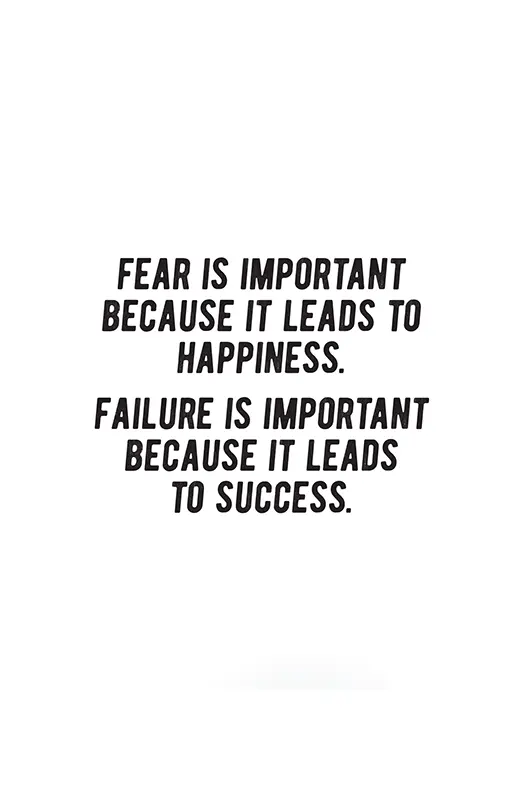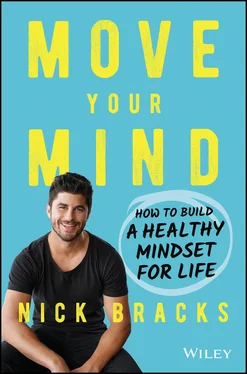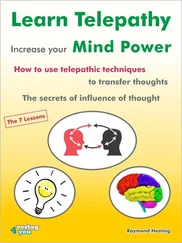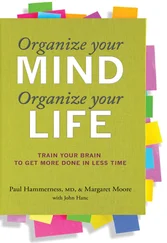Nick Bracks - Move Your Mind
Здесь есть возможность читать онлайн «Nick Bracks - Move Your Mind» — ознакомительный отрывок электронной книги совершенно бесплатно, а после прочтения отрывка купить полную версию. В некоторых случаях можно слушать аудио, скачать через торрент в формате fb2 и присутствует краткое содержание. Жанр: unrecognised, на английском языке. Описание произведения, (предисловие) а так же отзывы посетителей доступны на портале библиотеки ЛибКат.
- Название:Move Your Mind
- Автор:
- Жанр:
- Год:неизвестен
- ISBN:нет данных
- Рейтинг книги:5 / 5. Голосов: 1
-
Избранное:Добавить в избранное
- Отзывы:
-
Ваша оценка:
- 100
- 1
- 2
- 3
- 4
- 5
Move Your Mind: краткое содержание, описание и аннотация
Предлагаем к чтению аннотацию, описание, краткое содержание или предисловие (зависит от того, что написал сам автор книги «Move Your Mind»). Если вы не нашли необходимую информацию о книге — напишите в комментариях, мы постараемся отыскать её.
Move Your Mind
Move Your Mind
Move Your Mind — читать онлайн ознакомительный отрывок
Ниже представлен текст книги, разбитый по страницам. Система сохранения места последней прочитанной страницы, позволяет с удобством читать онлайн бесплатно книгу «Move Your Mind», без необходимости каждый раз заново искать на чём Вы остановились. Поставьте закладку, и сможете в любой момент перейти на страницу, на которой закончили чтение.
Интервал:
Закладка:
I remember telling myself at this time that I had to make a change, that I was going to stop drinking, and had to make a plan to get myself on track. Enough was enough. I'd been given a second chance. The police who were at the scene of the incident said they had never seen one that severe where anyone had survived. I was lucky to be alive, and even more so, was lucky I didn't kill my best friend or harm anyone else.
Furthermore, I had brought my family front and centre into the wreckage that was my mind and body, and it was time to see the signals and make a change. I stuck to this for a couple of weeks, but because I was still not willing to talk openly about what had happened and seek the help that I needed, I quickly fell back into the same behaviour patterns and regularly found myself in life-threatening situations.
I think the car crash was when my bad-boy image was born. After the story came out, I found myself the centre of attention, and people were watching every move I made. As long as I was drunk, though, I didn't mind. I felt like I could get away with anything.
The weird part was that I wasn't famous for being an amazing football player or an Olympian or an actor. I'd done nothing more than crash a car. Looking back, I realise now that I was very naïve and stupid, but at the time I thought it was fun to get into nightclubs without having to pay the cover charge. I loved the approval from crowds of people I didn't even know. During this time, going out was my world.
Even then, I could see that things had taken a seriously wrong turn in my life, but I couldn't see that I had bigger issues to tackle than just the drinking — alcohol had been nothing more than a really bad coping mechanism for some serious problems.
I just didn't know any better .
PART I MENTAL HEALTH AND WELLBEING
The impact of mental health on people and economies worldwide is devastating. Approximately one billion people globally suffer from a mental health disorder, and lost productivity from untreated mental health disorders costs the global economy US$1 trillion each year.
My life's purpose is to see global reform around mental health systems and for people to prioritise their own mental health above all else.
In part I, I'll share my own challenges with mental health issues and the simple go-to I use to manage them. With the help of two mental health experts, I'll discuss what mental illness is and how we can educate young people in particular to identify their own mental health issues and to seek help. I'll also impart some solid strategies for coping with mental health challenges.

CHAPTER 1 MY STORY
As a young kid, I always wanted to be the centre of attention, trying to do the most extreme acts I could think of and always pushing the boundaries. I was incredibly active, which, even as a little kid, was a way to cope with putting my overactive mind at bay. It's incredibly unpleasant to have compulsive thoughts, and trying to ignore them or push them away doesn't always work.
One of the earliest stories I remember is my obsession with Gary Ablett Senior, an iconic player in the AFL. My dream as a kid was to play AFL and he was the pinnacle, arguably one of the greatest players of all time, who played for the team I had grown up supporting — the Geelong Football Club.
I remember once heading to one of our family holiday house trips at Wye River and stopping in Geelong to visit a sports store. In the corner of the store, I spotted him — Gary Ablett — and instantly froze. My dad offered to approach him and introduce him to me, but I was so overwhelmed by the situation that I ran and hid in the change rooms, refusing to come out, not reappearing until Dad assured me Gary had left.
For the next month all I would talk about was how devastated I was with myself about passing up an opportunity to meet my hero. It ate away at me. More comically, and not long after this incident, I was in religion class at school and we were asked to draw a picture of God. Very seriously, I drew a picture of Gary Ablett kicking a goal in football.
A few weeks later, my uncle took me to a Geelong game at the then Optus Oval, a football ground. We were sitting on the forward line and in the final stages of the last quarter I saw Gary Ablett kick up a chunk of grass. As soon as I saw it, I became fixated on acquiring this piece of grass. When the siren sounded, I was over the fence, weaving through security to grab the grass that Gary Ablett's boot had kicked up. Luckily, I was able to pick up the grass before I was escorted off the ground. I carefully took it home, planted it and would water it every day. I would get up before my parents each morning, sit on the windowsill, eat a piece of this grass and pray that it would make me as good at football as Gary Ablett. If only life were that simple!
This compulsive behaviour wasn't a one-off. It manifested in many ways during my adolescence and caused me incredible difficulty in my developmental years.
As I mentioned, I quickly became obsessed with the idea of playing AFL football, to the point of training six hours a day as an 11-year-old. I don't know exactly why I felt this urge, and I didn't really question it. I didn't have the self-awareness or life experience to understand it. But it was overwhelming and strong, and I didn't feel I had a choice. I simply had to do it — like a never-ending pit that I just couldn't pour enough fuel into.
The issue was that I was incredibly shy and insecure, and this only added to my need to prove I was more capable in sport than anyone around me by pushing myself to the limit. It was a way of compensating for my combination of introversion, with a need to perform and express myself by physically doing extreme things. In doing so, I could express and give an outlet to what was going on in my mind, with sport being the manifestation.
Perhaps this was fuelled even further by having a well-known and successful father. By the time I turned 12 he had become the premier of Victoria — a position he maintained until my early 20s. I was and always have been proud of him, but I think it added fuel to an already burning fire to prove myself and achieve big things. I have no doubt I would have behaved in this way regardless, but it became a combination of nature and nurture driving my extreme behaviour.
I can vividly remember getting up at 2.30 am to exercise at the age of 12. My parents could see I was showing very unhealthy and obsessive behaviour patterns. And as with most addictions, I felt extreme shame and guilt about it and would do my best to hide things from them. Mum had to take my mini weights and equipment off me to put a stop to my obsessive training.
But that didn't stop me. I would go out into the backyard and sneak bricks into my room. I would hide them under my bed, or anywhere I could, and use them to secretly train. I would do a range of exercises for around three hours with the bricks; then, when I heard Mum get up at 6.30 am, I would pretend I had just woken up and head out for a one-and-a-half-hour run before school.
Sometimes, when parliament was sitting, Dad would get home late. I can remember being up and starting my training just as Dad was arriving home at 2 am. It was totally illogical, unhealthy and extreme, but I simply didn't know how to stop.
At this point, I was also training to become a middle-distance runner, and had become so fit through all my training for football that I would win every distance competition. After completing my 2.30 am morning training, I would go to school and go straight from there to that night's training, often tripling what my coach had set for me. For example, my night training would be a 30–45-minute warm-up jog, followed by 20 × 400-metre sprints at 80 per cent with a 400-metre jog in between for recovery. I remember getting home and being so tired that I wasn't able to even walk upstairs to take myself to bed. This behaviour went on for years.
Читать дальшеИнтервал:
Закладка:
Похожие книги на «Move Your Mind»
Представляем Вашему вниманию похожие книги на «Move Your Mind» списком для выбора. Мы отобрали схожую по названию и смыслу литературу в надежде предоставить читателям больше вариантов отыскать новые, интересные, ещё непрочитанные произведения.
Обсуждение, отзывы о книге «Move Your Mind» и просто собственные мнения читателей. Оставьте ваши комментарии, напишите, что Вы думаете о произведении, его смысле или главных героях. Укажите что конкретно понравилось, а что нет, и почему Вы так считаете.

![Джон Харгрейв - Mind Hacking [How to Change Your Mind for Good in 21 Days]](/books/404192/dzhon-hargrejv-mind-hacking-how-to-change-your-min-thumb.webp)










